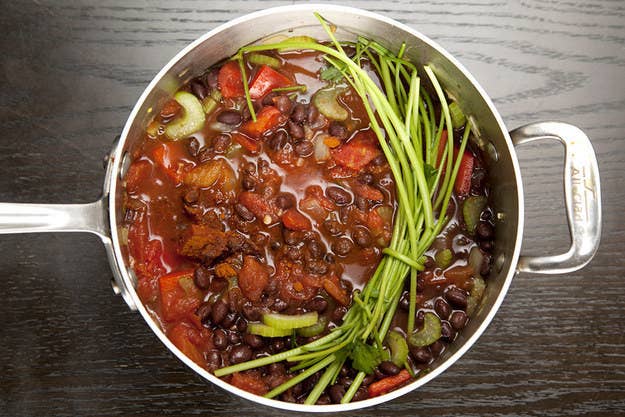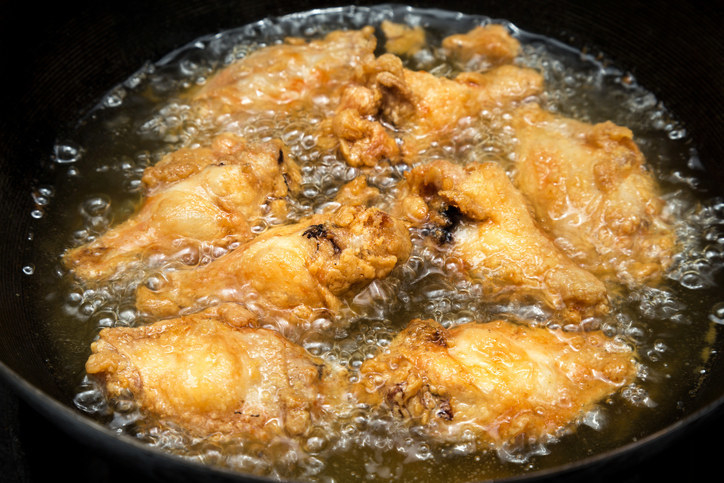1. Don't throw away herb stems. Instead, add them to stews, broths, and soups for more flavor.

2. For more flavor, finish up your dishes with a splash of acid.
3. And don't forget to salt along the way — *not* just at the beginning and end.

4. Double-fry your chicken to make it extra crispy.


